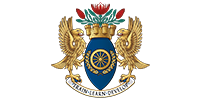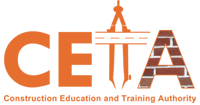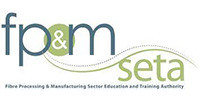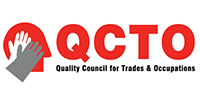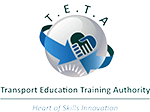First aid training is important in many industries and working environments – working with the elderly may be one where it is essential. We will look at the variety of different reasons why this is the case and how we can assist in keeping the older members of our communities safe. We at EMCARE are very passionate about the work we do and we truly believe our first aid training courses can help to save lives.
10 Reasons Why First Aid Is Important In Elderly Care
Let’s get into a few vital ways in which training can be beneficial for those working as caregivers to the elderly, or perhaps individuals assisting older family members.
- Elderly people often have much more fragile systems, and first aid training can allow caregivers to identify and respond to emergencies quickly and effectively. This can potentially prevent serious injuries and accidents, and even illness. Those equipped with the knowledge first aid training provides are far more able to handle serious situations such as cardiac arrest, seizures, and strokes, which could be critical in saving someone’s life.
- The Elderly are a lot more prone to falls – first aid training can assist caregivers in knowing how to properly assess and respond to falls, including stabilising injuries, preventing shock, and controlling bleeding. Caregivers who have completed first aid courses will also know how to help in the prevention of falls by evaluating the environment and identifying potentially dangerous locations or situations.

-
First aid courses can also help caregivers to recognise and respond to symptoms that come up as a
result
of underlying health issues that older people often have. Such as diabetes, dementia, or heart
disease.
Those who have done first aid training should know how to recognise the symptoms of these diseases
and how
to communicate with a healthcare professional for additional assistance. -
Proper knowledge of first aid can help individuals provide comfort and reassurance to elderly people
who
are in distress, like providing simple life support and stabilising them until emergency personnel
arrive on
the scene. This is crucial when dealing with individuals who may be disoriented, confused, or
otherwise
unable to communicate properly. -
First aid knowledge can help caregivers identify and respond to signs of neglect and abuse in
elderly
individuals, and take appropriate action to help protect them. Those who have first aid training
will
understand how to recognise and report signs of negligence or abuse, and how to support those who
have
experienced these unfortunate situations.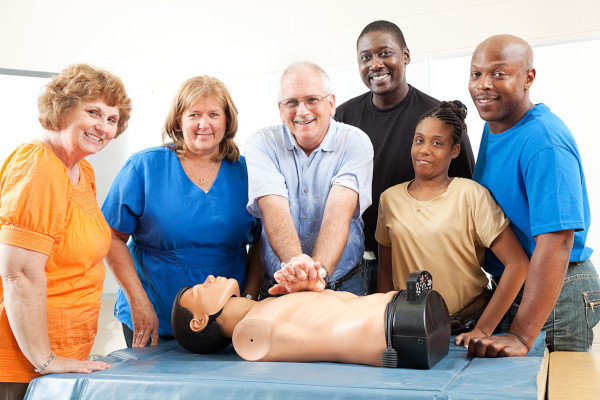
-
First aid courses can help caregivers to assist the elderly who may have some difficulty
communicating
their needs and desires. They may have experienced a stroke or have dementia, in many cases these
types of
emergencies result in individuals being unable to express themselves adequately. Our training will
equip
carers with the tools necessary to provide adequate care and support for these elderly individuals. -
In a care home, first aid training will allow caregivers to feel significantly more confident in
their
ability to handle emergency situations. This leads to a faster response time and less general
anxiety in the
workplace. Additionally, adequately trained carers indicate to the families and the elderly
themselves that
they are in good hands and that they will be looked after. -
Proper training can help carers understand the specific needs of elderly individuals and how one
should
provide care, including understanding how to successfully manage chronic conditions, provide
appropriate
wound care, and fall prevention. They can provide tailored care that is specific to the elderly –
this will
greatly improve their quality of life and general happiness.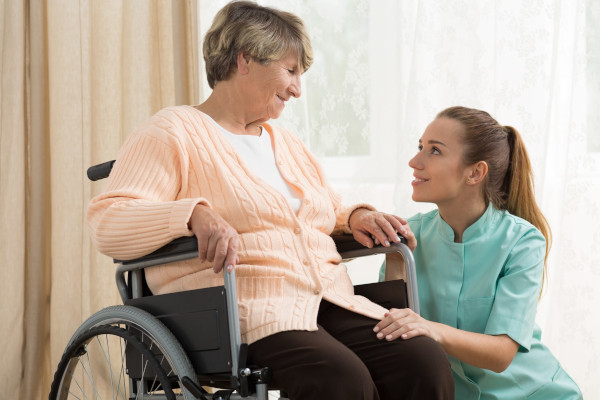
-
First aid can help carers understand the importance of good hygiene and infection control when
working
with older individuals. This includes understanding the correct way to clean and dress wounds, how
to use
personal protective equipment to prevent the spread of infection, and how to properly handle dirty
linens
and clothing for optimal hygiene. -
First aid courses can assist caregivers in fully understanding the importance of good nutrition and
hydration for the elderly. Carers with proper training will know how to identify the signs of
dehydration
and malnutrition, and how to successfully deal with these moving forward. As mentioned earlier, some
elderly
people have trouble communicating and may not be able to verbalise that it hurts to eat or drink.
This can
lead to a variety of negative outcomes. The presence of carers who have been trained well can hugely
increase their quality of life and general health.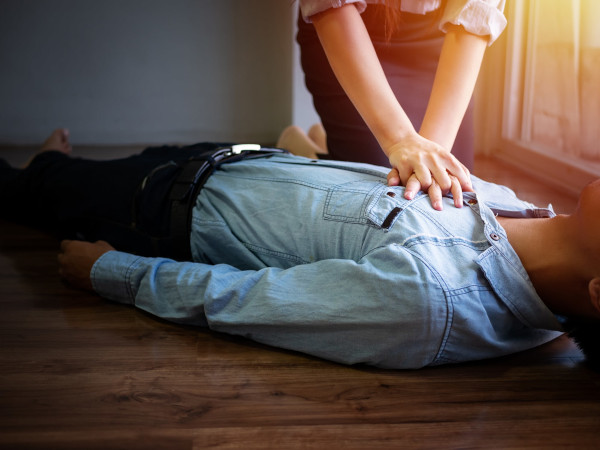
What Are Some Common Mistakes Associated With Elderly Care?
A common mistake when working with elderly individuals is not properly recognising the signs of injury or serious illness. If carers do not have adequate first aid training they may not be familiar with the symptoms of diseases that are commonplace at care homes. This can be especially dangerous for the elderly because they are significantly more fragile and are vulnerable to serious injuries and underlying health conditions. Delays in seeking proper professional care can lead to additional damage or even fatalities.
Another first aid-related mistake is not understanding the specific needs of elderly individuals and how to properly care for them. Techniques and protocols need to be adjusted and tailored to the specific needs of the elderly, such as those with cognitive impairments and mobility issues. If this is not done it can lead to caregivers not providing appropriate support and care, which can be very dangerous. Additionally, elderly individuals often have multiple medical prescriptions that need to be closely adhered to. If medications are not dosed correctly or the wrong type is ingested it can be incredibly harmful to the individual in question.
Carers who have received the training necessary to adequately care for the elderly can avoid these types of mistakes, and have the knowledge and skills they need to respond to emergency scenarios effectively and quickly. It is important to ensure that caregivers understand the responsibility and importance of high-quality elderly care and support.
What Can Be Done To Improve The General Experience Of Elderly People?
Those working with the elderly can help to improve their experience by promoting autonomy and independence, encouraging socialisation and stimulation, creating a safe and comforting environment, preventing and addressing abuse or neglect, and consistent continuity of care.
Carers should aim to encourage the elderly in their care to make their own decisions and engage in activities that they enjoy. Additionally, to provide opportunities for them to interact with their friends and family.
Elderly people in care homes can often begin to experience intense loneliness and isolation, steps should be taken to avoid these types of feelings. First aid courses allow caregivers to proceed with their jobs more effectively because they no longer have as much general anxiety around accidents and medical emergencies. This means they have more time to focus on the mental well-being of the elderly and their enjoyment of life.
More About EMCARE And Our First Aid Training Courses
EMCARE is a South African-based training company that focuses on providing high-quality health and safety training to eager individuals across our nation. Perhaps our most important courses are our first aid training courses, which are created to give students the ability and confidence to properly handle any medical emergencies that may arise.
We have a large variety of first aid courses available, all of which are taught by expert trainers with years of experience. We highly recommend that employees begin with our Basic First Aid Course. It covers many of the most common medical emergencies and first aid responses such as CPR, fractures, burns, open wounds, and bleeding. It also covers information on legal and ethical considerations, which are hugely important for employees in terms of handling medical emergencies in the workplace. These courses remain valid for three years, after which a refresher course may be necessary.
We aim to make it as easy as possible for employers to put their staff through our training programs, as we truly believe this kind of knowledge can help to save lives. Empower your employees and protect your customers with our excellent training options!





